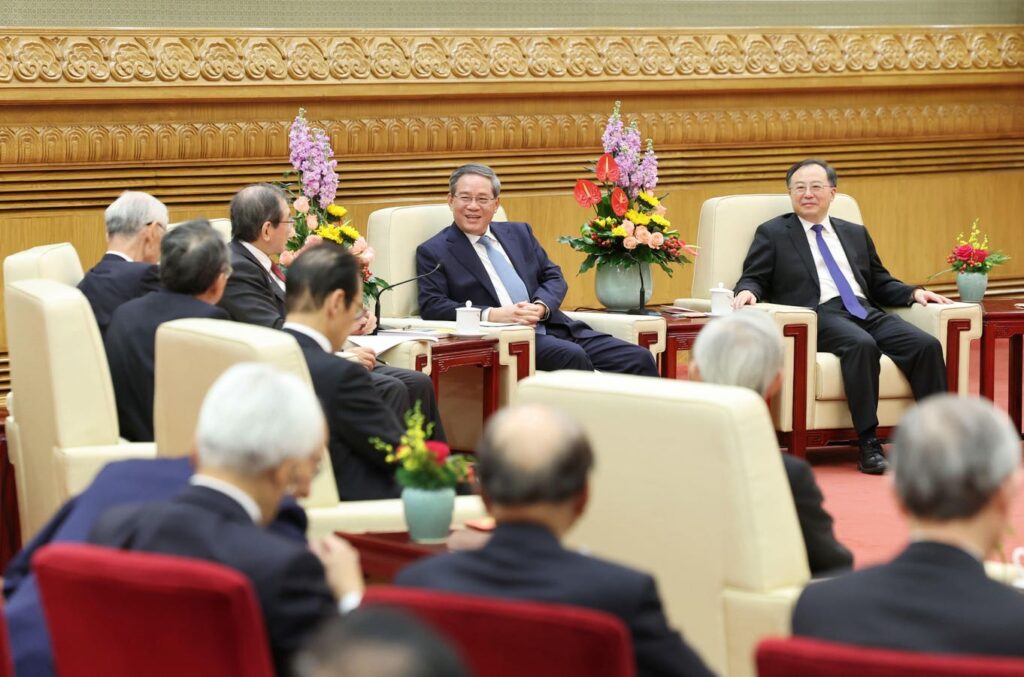Chinese Premier Li Qiang meets with Japanese Chamber of Commerce and Industry delegation … [+]
Japanese companies, once big fans of Chinese companies and a major source of Chinese investment inflows, have turned their backs on China. This is unwelcome, to say the least, as Beijing struggles to revive its economy and grapples with growing hostility from the United States and Europe. It presents President Xi Jinping and his Beijing advisers with even tougher economic and financial challenges.
In this pivot, Japanese companies followed most other developed countries. US and, to a lesser extent, European Union companies had already lost confidence in China's previous reliability. Supply chain interruptions during the pandemic, followed by years of isolation and lockdown due to Beijing's zero-COVID policy, convinced many that the best option was to diversify sourcing from China, primarily to other parts of Asia and, in the case of the US, also to Latin America. These efforts not only cost China a source of economic vitality and jobs, but also the inflow of investments on which its economic growth trajectory had depended.
If this loss of business confidence wasn't enough, Western governments are also antagonizing China. Washington has become openly hostile. Despite Biden reflexively reversing everything Donald Trump did, he has maintained the tariffs on Chinese imports that Trump imposed in 2018 and 2019. Biden has further expanded the tariffs, most recently on Chinese-made electric vehicle (EV) parts and batteries, solar panels, wind turbines, medical equipment, steel, aluminum and computer chips. The EU has not gone that far, but has also threatened tariffs against what it says is “dumping” EVs onto the market.
Tokyo has kept a low profile on tariffs and other anti-trade measures, but has shown distrust for China in other ways. A few years ago, Beijing halted shipments of rare earth elements after it tried to punish Tokyo for refusing to make concessions to China over disputed islands in the East China Sea, and Tokyo has led efforts to encourage the world's developed nations, the so-called G7 countries (Canada, France, Germany, Italy, Japan, the United Kingdom and the United States), to discover and develop rare earth deposits outside China. But it is not the Japanese government but Japanese companies that are most skeptical of China.
A large-scale public opinion poll conducted by the Japan Chamber of Commerce and Industry shows that an increasing number of its members believe that China's economic situation will worsen for the rest of this year and beyond. And the shift in opinion has been sudden. As recently as January, only 39% of its members believed that China would weaken economically. While this is no small figure, it pales in comparison to the most recent poll conducted in March and April, in which more than half expressed the same opinion. Nearly a quarter of respondents said they would reduce investment flows to China, and another quarter said they would not invest in China at all. Only 16% said they planned to increase their investment.
Of course, China has bigger economic and financial problems than the pessimism of Japanese business communities and the hostility of Western governments. China still faces a huge real estate crisis, so large that a recent trillion-yuan government plan to buy up vacant homes is not enough to meet demand. Chinese consumers have lost confidence in the future and are reluctant to spend, while Chinese private businesses are cutting back on both investment and hiring. It would help if Japan was friendly to Chinese trade and investment. The fact that it is not makes the mountain Beijing must climb to restore prosperity steeper, steeper and higher.

